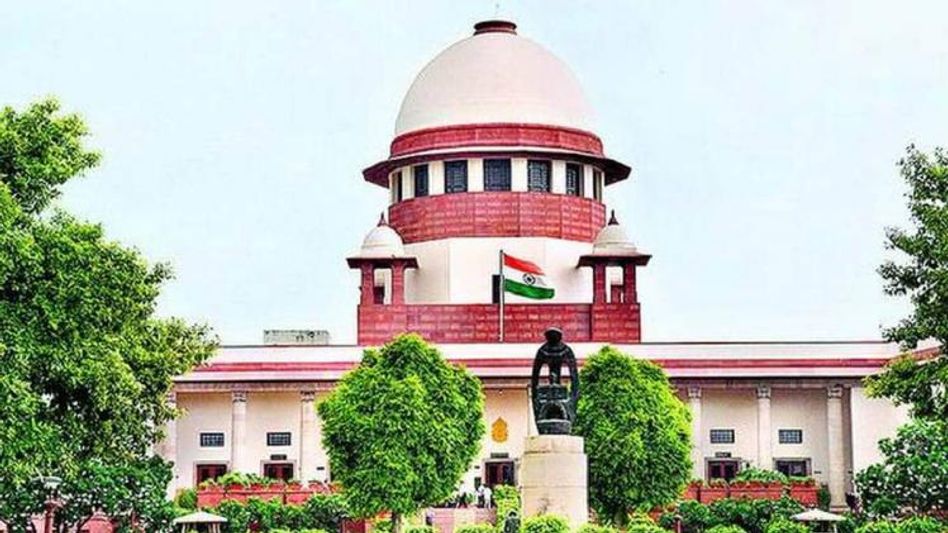Sikkim: BJP MP from Darjeeling raises objection on SC verdict terming Sikkim Nepalis as ‘foreigners’
Like many other political parties, MP Raju Bista from Darjeeling has raised serious objection to the recent Supreme Court verdict earlier this month on tax exemption for old settlers and women married outside the state of Sikkim, with the mention of the ‘immigrant tag on the Sikkimese Nepali community.
 Supreme Court (file photo)
Supreme Court (file photo)Like many other political parties, MP Raju Bista from Darjeeling has raised serious objection to the recent Supreme Court verdict earlier this month on tax exemption for old settlers and women married outside the state of Sikkim, with the mention of the ‘immigrant tag on the Sikkimese Nepali community.
Taking serious note on the SC’s verdict, MP Raju Bista has stated, “I stand with the people of Sikkim in seeking these offensive opinion expunged from the order. The entire Gorkha community across India stands with them. I have taken strongest exception to this, and I will be bringing up this issue in the appropriate forum. The era of Gorkhas being leveled as “foreigners” and discriminated against is long gone. We will not tolerate any such infringement and baseless assertions on our community any more”.
Mentioning in a press release about the history of the Sikkimese Nepali people, MP Raju Bista said, “Perhaps the Hon'ble Court is unaware that the Gorkhas have been part of the Sikkim much before its modern day existence. The very name Sikkim is derived from the Tsong (Limbu) words Su-Khyim, meaning New Palace. Limbus are one of Gorkha sub-tribes. When Phuntshog Namgyal was consecrated as the first Chogyal of Sikkim in 1642, he made a pact called called Lho-Mon-Tsong-Sum (Lho-Bhutias, Mon-Lepchas, Tsong-Limbus, and sum-three), attesting to Gorkha presence in Sikkim when the modern day Kingdom of Sikkim was established. The presence of Magars, Rai and other Gorkha-sub tribes in Sikkim have been very well documented, including in the Census of 1931 and 1941. Moreover, Gorkha kingdom had annexed Sikkim from 1777, till the Gorkhas surrendered lands from Kangra in the west to Darjeeling-Sikkim region in the east following the Anglo-Gorkha war under the 1816 Sugauli Treaty”.
Raju Bista continued, “In 1817, the lands of Sikkim, taken over from the Gorkha kingdom were restored to the Chogyal with certain conditions by the British under the Treaty of Titalia. While the ownership of lands changed, the people remained in these land, and they today constitute the ethnic and cultural fabric of Sikkim, one of which happens to be the Sikkimese Gorkhas”
“From ancient times to the merger of Sikkim in India in 1975, the Gorkhas have been an integral and important part of the history, polity and society of Sikkim. Out of the six Chief Ministers of Sikkim so far, five belong to the ethnically Gorkha community, including Hon'ble P.S Tamang (Golay) ji the current Chief Minister of Sikkim,” added Bista.
“Yet, the Supreme Court thought it was wise to label a whole group of people as "foreigners". It is this humiliation meted out from the highest of offices across the nation that enables the persecution Gorkhas have had to face across India. As history is our witness, the Gorkhas have had to bear the burnt of ethnic strife in many parts of India, from where they have been forced to flee after being labelled as 'foreigners'. The Bhumiputra movement in North East India between 1975-1999 saw over 100,000 Gorkhas being evicted from their ancestral lands. This persecution has continued to date, Gorkhas from Darjeeling too have being labelled as 'foreigners' every time we have demanded our constitutional rights”, Bista concluded.
Also read : Hamro Sikkim Party demands for restoration of Nepali seat reservation in assembly
Copyright©2025 Living Media India Limited. For reprint rights: Syndications Today









